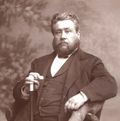Who hath wrought and done it, calling the generations from the beginning? I the LORD, the first, and with the last; I am he.(Isaías 41:4)
The isles saw it, and feared; the ends of the earth were afraid, drew near, and came.(Isaías 41:5)
They helped every one his neighbour; and every one said to his brother, Be of good courage.(Isaías 41:6)
So the carpenter encouraged the goldsmith, and he that smootheth with the hammer him that smote the anvil, saying, It is ready for the sodering: and he fastened it with nails, that it should not be moved.
But thou, Israel, art my servant, Jacob whom I have chosen, the seed of Abraham my friend.(Isaías 41:8)
Thou whom I have taken from the ends of the earth, and called thee from the chief men thereof, and said unto thee, Thou art my servant; I have chosen thee, and not cast thee away.(Isaías 41:9)
Fear thou not; for I am with thee: be not dismayed; for I am thy God: I will strengthen thee; yea, I will help thee; yea, I will uphold thee with the right hand of my righteousness.(Isaías 41:10)
Otras publicaciones relacionadas con "Isaías 41:7":
Isaías 41:7 - Referencia Cruzada
And he said, Ye have taken away my gods which I made, and the priest, and ye are gone away: and what have I more? and what is this that ye say unto me, What aileth thee? (Jueces 18:24)
They lavish gold out of the bag, and weigh silver in the balance, and hire a goldsmith; and he maketh it a god: they fall down, yea, they worship. (Isaías 46:6)
For the customs of the people are vain: for one cutteth a tree out of the forest, the work of the hands of the workman, with the axe. (Jeremías 10:3)
Nebuchadnezzar the king made an image of gold, whose height was threescore cubits, and the breadth thereof six cubits: he set it up in the plain of Dura, in the province of Babylon. (Daniel 3:1)
The smith with the tongs both worketh in the coals, and fashioneth it with hammers, and worketh it with the strength of his arms: yea, he is hungry, and his strength faileth: he drinketh no water, and is faint. (Isaías 44:12)
The workman melteth a graven image, and the goldsmith spreadeth it over with gold, and casteth silver chains. (Isaías 40:19)
And the five men that went to spy out the land went up, and came in thither, and took the graven image, and the ephod, and the teraphim, and the molten image: and the priest stood in the entering of the gate with the six hundred men that were appointed with weapons of war. (Jueces 18:17)
Silver spread into plates is brought from Tarshish, and gold from Uphaz, the work of the workman, and of the hands of the founder: blue and purple is their clothing: they are all the work of cunning men. (Jeremías 10:9)
